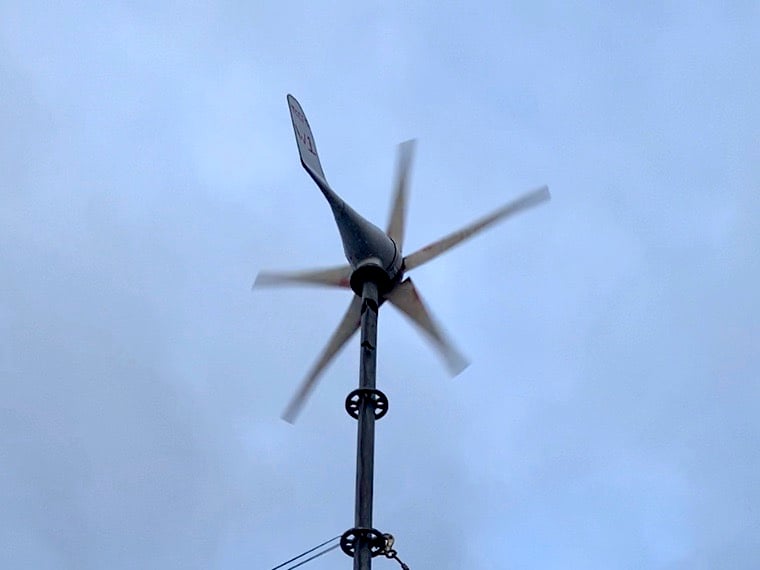The wind turbine went up a few days after Christmas, white blades whirring against the blue winter morning sky.
It generates a small amount of electricity, although more equipment is needed to deliver and store more power. But for the 30 residents of a tent city at CRAB Park, power sources like solar panels and wind power could help heat hot water for handwashing, light dark tents during the winter months and charge phones.
“The idea came from residents and former residents a year ago,” said Fiona York, a supporter of the tent city.
“When people are living outdoors and you give them that little bit of stability… you start thinking long term about resources and setting things up that are workable.”
In before the tent city suffers from gentrification and all the homeless people are forced out on the street.
This used to be a legitimate thing. Shack towns turned into real housing over time as people worked and accumulated resources. Rather than starting with a mortgage. Here’s a historical example in Toronto: https://www.jstor.org/stable/215635
That makes me think that there need to be dedicated locations, perhaps with a few critical utilities already in place. The numbers of people living there and their reasons for living there would be a useful measure of how well we’re doing in providing proper shelter.
Those locations need to have ready access to various services, not parked on the outskirts. Maybe it’s worth giving up a park or two. Keeping them central and visible would be an important part of getting communities on board with proper social housing programs.
I have no doubt that, in certain climates or certain times of year, some people would deliberately choose to live there for adventure or lifestyle reasons, but I don’t see anything wrong with that.
Ideally, we would give up something fairly useless like a parking garage. They have rain/snow protection, have power outlets already, and often have bathrooms. They are also generally near resources inside of cities.
Something else that’s are useless in their current state are golf courses. They are less bleak than a parking garage, but they don’t have the same infrastructure.
Parking garages would be perfect!
As much as I love golf, I agree about the courses. I now play only on “pasture courses”. Basically a chunk of unirrigated land with 9 flags surrounded by sand for a “green”. $5/round, $50/season. They may be just a Saskatchewan thing, but I love them.
Why not just build tiny homes? Built to code, 200sqft, well insulated, power, running water, and phone/internet, close to public transit. A fixed address with access to a social worker and a nurse on site, and the ability to get back up on their feet.
The idea would be to give people something between ‘tent’ and ‘apartment’ as transitional housing. Nobody freezes to death, nobody gets caught in the rain and loses everything they own. A community centre for socializing / education / laundry / showers, etc. There’s a ton of unused / underutilized lots in most cities - buildings ready for demolition, behind on taxes, and better used to deal with the housing crisis.
This isn’t rocket surgery. Someone please take this idea and run with it!
Like this?. We just need more people and governments on board.
Precisely. Not sure why their example isn’t being replicated in every city and suburban town.




